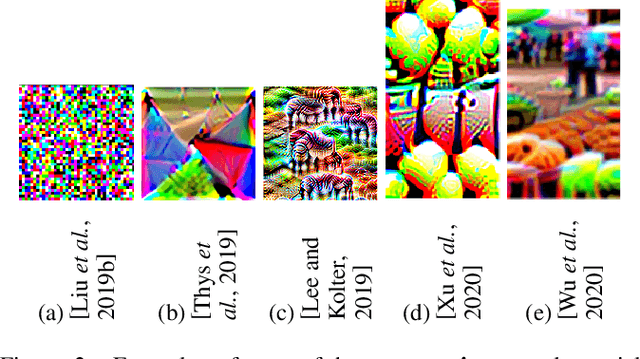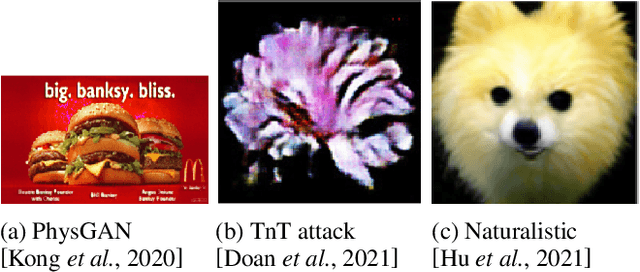Bianca-Marina Codău
Feasibility of Inconspicuous GAN-generated Adversarial Patches against Object Detection
Jul 15, 2022



Abstract:Standard approaches for adversarial patch generation lead to noisy conspicuous patterns, which are easily recognizable by humans. Recent research has proposed several approaches to generate naturalistic patches using generative adversarial networks (GANs), yet only a few of them were evaluated on the object detection use case. Moreover, the state of the art mostly focuses on suppressing a single large bounding box in input by overlapping it with the patch directly. Suppressing objects near the patch is a different, more complex task. In this work, we have evaluated the existing approaches to generate inconspicuous patches. We have adapted methods, originally developed for different computer vision tasks, to the object detection use case with YOLOv3 and the COCO dataset. We have evaluated two approaches to generate naturalistic patches: by incorporating patch generation into the GAN training process and by using the pretrained GAN. For both cases, we have assessed a trade-off between performance and naturalistic patch appearance. Our experiments have shown, that using a pre-trained GAN helps to gain realistic-looking patches while preserving the performance similar to conventional adversarial patches.
 Add to Chrome
Add to Chrome Add to Firefox
Add to Firefox Add to Edge
Add to Edge